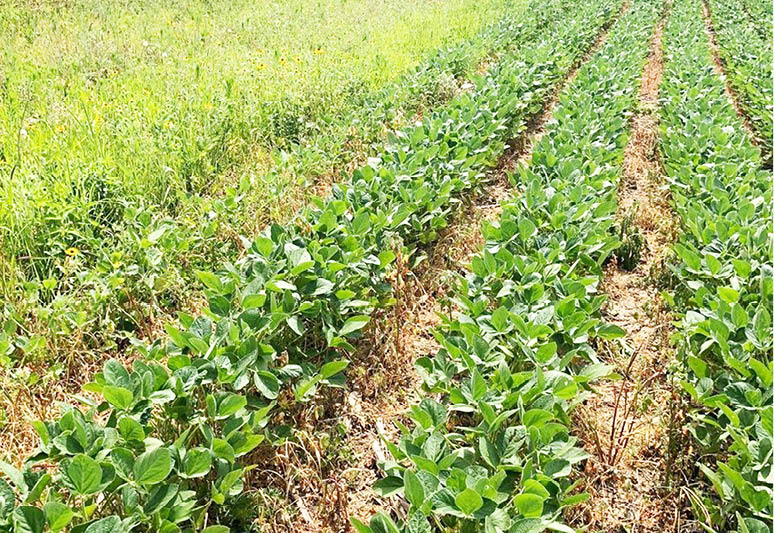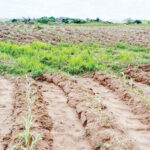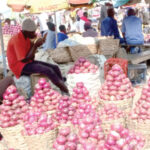Nigeria has been faced with the challenge of farmer-herder conflict, which has snowballed into a large-scale security challenge for the country.
At present, many citizens have been ejected from their homes and their source of livelihood has been cut off by the protracted conflict that has ravaged almost all sections of the Nigerian state.
10 LGAs captured in Benue’s land digitalisation
To solve this challenge and ensure there is no recurrence, it is important we highlight the sources of the mayhem that has predisposed Nigeria to life, nutrition and food insecurity as well as poverty.
The challenge of the herders-farmers conflict started as a competition for natural resources occasioned by global warming caused by climate change. Climate change has caused seasonal weather and climate change, with resultant effects such as flooding, drought, overheating and the likes. While not putting the blame on herders, it is important to note that the animals are water dependent more than crops, and a small change that leads to water scarcity will leave herders moving around in search of luscious pasture and water for their animals. During this search for greener pasture for the animals, herders often have misunderstandings with farmers, which in some cases leads to full blown violence. As this cycle continues, farmers whose properties were destroyed by these animals in some cases attack herders and in other cases take to crimes such as cattle rustling in retaliation for the destruction of their farmlands.
In addition to climate change, the ethnicisation of trades in Nigeria has also contributed to this farmer-herder crisis. In Nigeria today, anyone herding is erroneously considered a Fulani man while some other tribes have been known to be farmers. The implication of this is that anytime there is a misunderstanding between herders and crop farmers, the ethnic differences are leveraged upon to fan the ember of discord, which has made the problem very hard for traditional leaders to resolve.
This challenge is exacerbated by the conflict across the Sahel, the porosity of the Nigerian border and Boko Haram terrorists who have used this opportunity to distribute arms to willing hands in the country. The implication of this is that the country now faces malnutrition, famine, kidnapping and banditry, which have impeded people from engaging in their legitimate businesses. In addition, the farmers-herders conflict has made some hitherto financially buoyant households now depend on the government for social protection thereby putting the country at a conspicuous spot on the world poverty clock. In addition to this, it is reported that 14.4 million Nigerians are facing a food crisis and this could grow to 19.5 million by the end of 2022.
To reverse this trend, the government must, first of all, ensure deradicalisation of people that have used this opportunity to take to crimes. Some of the victims of these conflicts need rehabilitation to save them from depression and purge them of animosity against their predators. There must also be a total cleansing of the land, of illegal arms and ammunition.
The government must as a matter of urgency realise that rain-fed agriculture is not sustainable and should put in infrastructural support, incentives and subsidies, which can make farming more attractive and sustainable for all, thereby preparing the country to move to a non-oil economy. In addition to loans being given to farmers, the farming/herding profession must be formalised with structures that can protect the farmers, herders and their properties. Services that promote financial inclusion such as banking, life and health insurance must be introduced into the farming communities.
There is a need for a bottom-up education of farmers through a well-structured farmer’s school where modern and innovative practices such as precision farming, climate-smart agricultural practices, data-oriented agriculture, remote monitoring, genetic improvement, radio frequency identification, milking and feeding automation can be taught to farmers’ association and cooperatives. It could be part of the curriculum under the RUGA programmed mulled by the federal government intended to offer some of these services. It is important to note that the ethnicisation of livestock rearing in Nigeria and the belief that there is “Fulanisation” of the country in some quarters will make it hard for the government to implement it. The best approach to providing these services is to encourage formation of registered associations and cooperatives by farmers and herders who can mobilise their members to set up standard farms and ranches with human capacity development training and material support from the government.
Hammed Olaoluwa Jimoh is a lecturer at the School of Vocational and Technical Education, Federal College of Education, Katsina

 Join Daily Trust WhatsApp Community For Quick Access To News and Happenings Around You.
Join Daily Trust WhatsApp Community For Quick Access To News and Happenings Around You.


